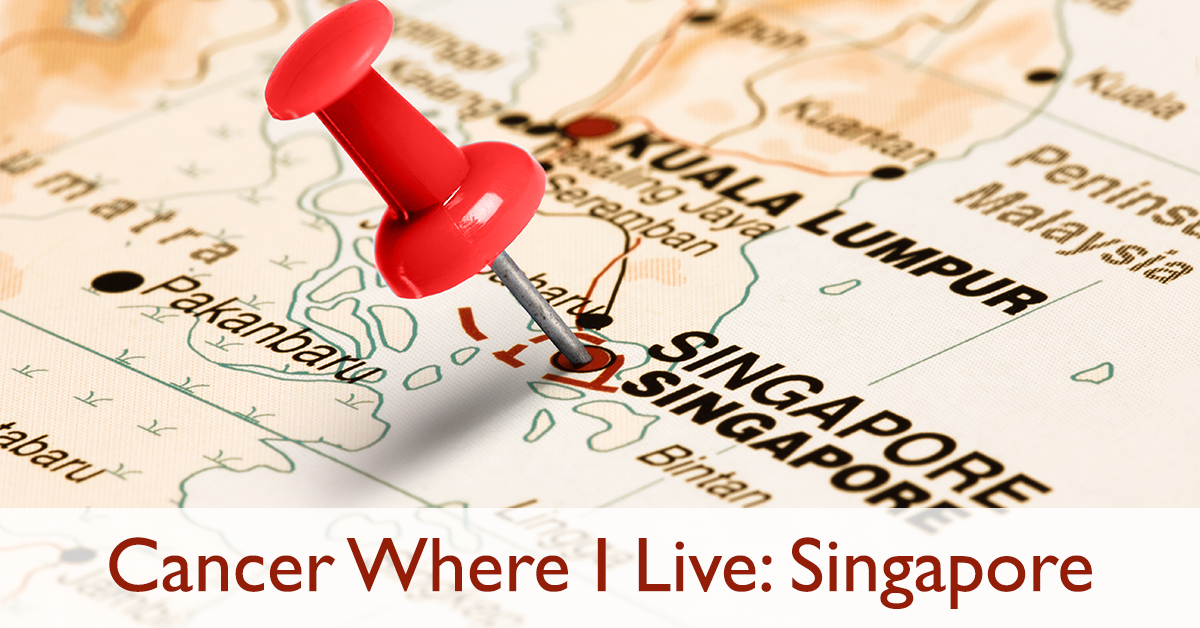
Cancer in My Community is a Cancer.Net Blog series that shows the global impact of cancer and how people work to care for those with cancer in their region. Melvin LK Chua, MBBS, FRCR, PhD, FAMS, is an associate professor and radiation oncologist at the National Cancer Centre Singapore, an academic institution that provides care to 70% of people with cancer in the country, and the Duke-NUS Medical School in Singapore. Dr. Chua specializes in treating head and neck and genitourinary cancers. His research interests include leading next-generation clinical trials and integrating cancer genomics in precision oncology. You can follow Dr. Chua on Twitter. View Dr. Chua’s disclosures.
Why I care for people with cancer
Prior to joining radiation oncology, I was contemplating a career as an intensivist, in part because I enjoyed the adrenaline rush of managing very ill patients in the intensive care unit (ICU). However, all of that changed when I undertook a rotation in radiation oncology in 2006. Simply put, I found out very early on in my career that caring for people with cancer provided everything one could hope for when working in medicine. That included everything from developing an abundance of compassion for fellow human beings and their family members, to being mesmerized by the rapid progress of research and innovation in discovering new and better treatments, to eventually being able to translate those advancements back to the clinic. To this day, I remain grateful for the opportunity given to me by my patients to help them recover from this dreadful illness.
What cancer is like in Singapore
Despite the fact that Singapore is a highly developed country with a high literacy rate, a cancer diagnosis still evokes a sense of despondence in most people from all walks of life. I think this is even more evident in Singapore culture, where it is a cultural norm to appear strong and brave. Thus, people with cancer don’t always speak their true emotions when faced with a cancer diagnosis.
In terms of cancer care in Singapore, the landscape has evolved substantially in the last decade and will continue to do so. In particular, there have been 2 major areas of transformation. The first is the massive investment into cancer research. This has helped bring more clinician-scientists to the country and has spurred the creation of comprehensive cancer programs. These programs are largely focused on precision oncology, which is cancer care that is tailored to the person being treated and their specific diagnosis, in several cancers common in Asian people, including gallbladder cancer, liver cancer, lung cancer, lymphoma, nasopharyngeal cancer, and stomach cancer.
The second area of transformation in cancer care in Singapore is the increasing awareness of the rising costs of cancer treatments. This is especially relevant with the emergence of more treatments that help patients live longer but can be expensive. I predict that this awareness will put more emphasis on ensuring that treatments are affordable and effective and that more will be done to track patients’ quality of life.
In Singapore, most cancer care costs are covered by the comprehensive National Medical Insurance plan. This plan covers the bulk of treatment costs, which include drugs and procedures like surgery or radiation therapy. However, there is still a small proportion of the cost that is paid by the person with cancer. There is also access to private health care, which is used by around 10% of the population.
More than 90% of people with cancer in Singapore have access to care following a cancer diagnosis. Multidisciplinary care for the majority of cancer types is common practice at the 3 major cancer hospitals in Singapore, and each hospital also has clinical trials available. Next-generation sequencing, which is a type of genetic sequencing technology, is also readily available for patients. This technology allows the use of precision medicine for personalized cancer care. At present, a lot of effort is being made to coordinate patient care, research, and education activities between the major cancer hospitals in the country.
Where people with cancer can find local resources and support
There are several online resources that are produced and shared by non-profit organizations in Singapore, such as the Singapore Society of Oncology and the Singapore Cancer Society. Additionally, patient education and support resources are available through the websites of hospitals and clinics, including for the National Cancer Centre Singapore. Finally, educational activities for people with cancer are organized at the various hospitals in Singapore throughout the year.







